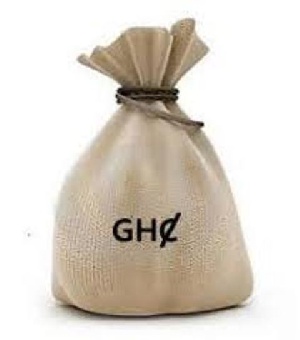The Ghana Revenue Authority (GRA) says though its revenue collection target for the 2015 fiscal year is challenging, it is hopeful that with appropriate strategies, hard work and resilience of the staff it is achievable.
The GRA has been charged to collect GH¢21.98billion for the 2015 fiscal year.
“The Authority is hopeful it will meet the new revenue collection target. We believe GRA will make giant strides in 2015 with the cooperation and assistance of stakeholders, particularly taxpayers and staff, and through modernisation of its processes and procedures,” said Mr. George Blankson, Commissioner-General of GRA, at a media interaction in Accra.
Mr.Blankson explained that GRA will adopt measures to ensure effective segmented compliance management strategies to facilitate taxpayer compliance to their tax obligations.
The Authority, he said, will also deepen deployment of the Total Revenue Integrated System (TRIPS) by the Domestic Tax Revenue Division to help boost revenue.
“GRA will monitor sectoral compliance behaviour to identify economic sectors manifesting high degrees of non-compliance and undertake requisite measures,” he said
He explained that there is the urgent need to considerably increase revenue mobilistation from domestic sources because as a lower middle-income country, grants, aid and concessional loans from development partners have reduced significantly.
“We in GRA believe that the modernization programme will among others help achieve this objective,” he stated.
GRA in 2014 missed its revenue collection target by GH¢0.54billion, representing a shortfall of 3 percent from the GH¢17.61billion revenue collection target.
The performance represents a growth rate of 29.7 percent in revenue collection over that of 2013 and is a significant increase compared with revenue collected in 2013 of GH¢13.16billion -- which showed an 18.5 percent growth over that of 2012.
“In the case of revenue inflows for the whole nation, an error margin of 5 percent is not unreasonable to assume. Such exogenous factors as the precipitous fall in the price of gold and interruptions in the supply of gas and electricity which occurred are difficult to predict with certainty.
“Therefore, the 3 percent short-fall in GRA’s revenue collection -- which is within the 5 percent error margin -- means that for all practical purposes the revenue target can be deemed to have been achieved: the 2014 revenue collection is a huge increase,” he said.
The revenue collection performance, which was fairly impressive according to Mr. Blankson, was achieved in spite of several challenges the economy faced -- including the energy crisis negatively affecting the output, productivity and profit levels of business enterprises.
The foreign exchange fluctuation had a limiting effect on imports and resulted in foreign exchange losses for business entities.
“The volume of imports in 2014 was less than that of the 2013. This had negative implications on the quantum of imports duties. The fall in the price of minerals on the global market led to lower incomes and profits, staff lay-offs in the mining sector, and negatively affected PAYE, royalty, and corporate tax payments,” Mr. Blankson stated.
At the end of the fiscal year, the breakdown of the provisional collection figure for 2014 was as follows: The domestic direct tax collection was GH¢7.61billion, domestic indirect tax collection was GH¢2.61billion and Customs collection stood at GH¢6.86billion.
“The modernisation process, which began in 2010 following integration of the Agencies, will be pursued to help improve administrative processes and procedures to ensure taxpayer compliance,” Mr. Blankson remarked
Business News of Wednesday, 14 January 2015
Source: B&FT

















